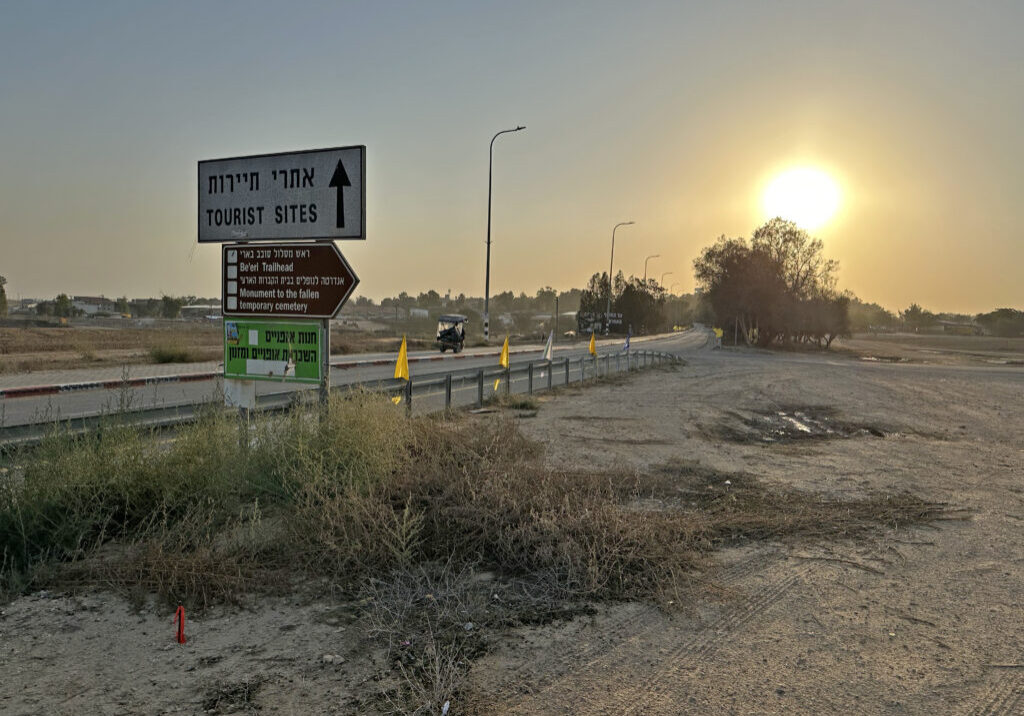Australia/Israel Review
Courting Controversy
Jan 27, 2023 | Amotz Asa-El

Israel’s intense debate over judicial reforms
Huddling under a sea of umbrellas while braving January’s rain and chill, 80,000 protesters packed Tel Aviv’s Habima Square, the piazza outside Israel’s national theatre, on the evening of Jan. 14. By sheer coincidence, this was just at the time the actors inside that theatre were staging “Bull”, Mike Bartlett’s play about employees waiting to get fired.
As the protesters and the rest of the new Israeli Government’s opposition see things, what now faces dismissal is not this or that individual, but the country’s entire judiciary as Israel has known it for 75 years.
At stake is a sweeping constitutional reform blueprint introduced by Justice Minister Yariv Levin in a dramatic, televised press conference on Jan. 4. The Levin Reform, as it has come to be labelled, would change the selection process for judges, redefine relations between the judiciary and the legislature, restrict the grounds for Supreme Court decisions, and reconfigure the positions of both Israel’s attorney-general and the legal advisors that play a key role in every government ministry.
The package is a juridical, political, and public bombshell that is unsettling and dividing Israeli society in a way that nothing has since the controversies surrounding the First Lebanon War 40 years ago.
The 53-year-old Levin, a corporate lawyer, former speaker of the Knesset, and the son of a Hebrew University linguist, says he has prepared this reform for two decades, and is motivated by a thorough acquaintance with and deep anxiety over the Supreme Court’s power and direction.
Opponents of the Levin Reform dismiss as a lie his stated aim “to restore the balance between the branches” of government. They claim that his real aim is to disempower the Supreme Court’s judges and impose the control of politicians over them, and that he is driven by Prime Minister Binyamin Netanyahu’s personal legal situation.
One of the most ambitious of the blueprint’s reforms would recast the forum that appoints Israel’s judges.
Currently, the Judicial Selection Committee includes three Supreme Court justices, including the Court’s president; two ministers, including the justice minister; two lawmakers elected by the Knesset; and two lawyers elected by the Bar Association. The proposed reforms would delete the lawyers, add two more politicians – one Knesset member and one minister – and insert two “public representatives” selected by the justice minister.
As for the lawmakers on the Committee, who in the current system are elected by their peers in a secret ballot, the reform would eliminate that election and instead automatically assign the chairpersons of the Knesset Law Committee and State Control Committee – both of whom are always members of the ruling coalition – and the House Committee chair, who belongs to the opposition.
Overall, these changes would shift the Committee’s majority from the judges and lawyers to the politicians, and effectively give the ruling coalition – which would control seven of the 11 members of the reformed Committee – complete power over the selection of judges. Additionally, the reform stipulates that every Supreme Court candidate will be subject to a public hearing in the Knesset.
Concerning the power of the judiciary, the reform proposes that, should the Supreme Court invalidate a Knesset law as unconstitutional, the Knesset would be able to override the law’s cancellation by a simple majority vote of 61 of Israel’s 120 lawmakers.
Moreover, even before such a showdown reaches the legislature, the Court would be required to agree on its constitutional challenge to a law with a majority consisting of 12 of its 15 justices, as opposed to the current requirement of a simple majority.
However, the reform proposal says that if all 15 Supreme Court judges vote to invalidate a law, the Knesset cannot override that finding during the same Knesset term.
As for the Court’s scrutiny of government actions, it would be deprived of its current ability to overrule an executive or administrative measure as “unreasonable”, and must rule only on whether such a measure is legal or illegal.
Lastly, the position of attorney-general, which currently includes the role of the government’s chief legal advisor and head of the office of public prosecutions, would be split. The proposal is that one person would be the legal advisor, who judges the legality of government plans and actions, and another person would be in charge of public prosecutions.
Additionally, the rest of the government’s legal advisors would no longer be tenured public servants, but redefined as “trust appointments” like any ministry’s director-general, meaning that ministers would be able to hire and fire them. Furthermore, the advice of such advisors would be explicitly defined as nonbinding.
The Knesset Law Committee had begun discussing the blueprint when, on Jan. 18, the Supreme Court – responding to an appeal heard before Levin unveiled his plan – voted ten to one to overturn Netanyahu’s appointment of Shas party leader Arye Deri as Minister of the Interior and Minister of Health. Referring to his conviction last year on tax evasion charges following a plea bargain which led to a suspended sentence, the Court ruled that Deri had violated his commitment under that plea bargain to retire from politics. Following the court’s ruling, Deri was fired from his ministerial positions on Jan. 22.
The published explanation of some of the Supreme Court judges, calling Deri’s appointment “extremely unreasonable” (others cited different grounds for disallowing the appointment), is an ironic emblem of where Israel’s constitutional crisis has arrived, and what it is all about.
Reponses to the Levin Reform have ranged from enthusiasm across the right-wing coalition and its voters, to lamentation among its political opponents and revulsion among jurists.
The parliamentary opposition, caught unprepared by the reform’s range and the speed with which it arrived, failed to speak with one voice.
Opposition Leader Yair Lapid, the former Prime Minister and head of the Yesh Atid (There is a Future) party, said Levin’s bill is “a criminal attempt to bully the justices,” and vowed not to discuss its terms with the Government. However, former Defence Minister Benny Gantz, head of the National Union party, called on Netanyahu to conduct a dialogue over the plan with the opposition.
Lapid’s militancy was bolstered by Supreme Court President Esther Hayut’s public claim, in an extraordinary statement for a sitting judge, that the bill constitutes “a plan to shatter the legal system” and “to change the state’s democratic identity.”
The Chief Justice was joined by a battery of former Supreme Court justices and attorneys-general, including two A-Gs who were appointed by Netanyahu. Where, then, does Israel’s constitutional crisis come from and where is it likely to lead?
Israel’s constitutional crisis really began three years ago, when sitting PM Binyamin Netanyahu was charged with bribery, fraud and breach of trust in three different cases.
Netanyahu refused to step aside while facing trial, and accused the judiciary, media and police of conspiring to unseat him. Centrist parties and even some right-leaning parties refused to sit in government with him as long as he was under indictment, and so Israel went to four early elections that produced no real decision and little prospect of a stable governing coalition. A fifth poll, on Nov. 1 last year, saw Netanyahu and his right-wing allies emerge with a slim, but clear, majority.
While these were the immediate circumstances leading up to the Levin Reform, there is a much longer history and deeper context, harking back to legislation passed in 1992. Israel’s “Basic Law: Human Dignity and Liberty,” passed that year, guaranteed human dignity, human freedom, privacy and property as constitutional rights in Israel. A subsequent 1994 Basic Law guaranteed freedom of occupation.
Israel’s Supreme Court, under the presidency of liberal justice Aharon Barak, used this legal infrastructure to repeatedly interfere in executive action and parliamentary legislation in ways that earned him, and the school of judicial thought he founded, steadily growing opposition.
Some of the Court’s controversial rulings included a rerouting of the anti-terror fence along the boundary of the West Bank and invalidating a law that would have left West Bank settlement real estate in Israeli hands, if Palestinian land ownership was not established before construction (the original owners were to be compensated instead of getting the land returned).
The legacy of judicial activism inspired three strands of opposition to it inside the current ruling coalition: settler leaders see in the Court an obstacle to the settlement growth and eventual annexation they openly seek; ultra-Orthodox leaders want to exempt yeshiva students from military service through laws which the Court repeatedly invalidated as violating the principle of equality before the law; and Likud leaders like Levin feel that the Court has become an unelected regime that impedes the elected government’s ability to rule.
However, Levin’s opponents say his bill is really designed to put an end to Netanyahu’s legal ordeal. If Netanyahu now appoints a new attorney-general, they say – as the reforms would allow – the new appointee will be in a position to tell the Court that after studying the evidence in Netanyahu’s trial, he or she is withdrawing the indictments against his boss. In such a case, the trial would be cancelled. Similarly, judges appointed by Netanyahu will rule his way should his cases reach the Supreme Court, the critics say.
Critics of the Supreme Court’s expanded role post-1992 transcend Israel’s right-left divide. Over the years, they have included former Supreme Court President Moshe Landau (1912-2011) and former Vice President Menachem Elon (1923-2013); the former Tel Aviv University Law School Deans Menachem Mautner and Daniel Friedman; the world’s foremost expert on Israel’s constitutional law, Prof. Amnon Rubinstein; as well as Israel’s leading political scientist, Hebrew University’s Shlomo Avineri.
However, in its political unilateralism and legislative sweep, the Levin Reform made no effort to harness such supporters from beyond the political right – instead provoking strong opposition from the entire legal establishment, along with academics, business circles and leaders of the hi-tech sector. As they see things, Netanyahu is set to lead Israel down the path to “illiberal democracy” charted by Hungarian leader Viktor Orban.
The legislative process is still in its early stages, so the bills proposed by Levin are likely to change before they become law. However, as things currently stand, there is little indication that Netanyahu and Levin will retreat from the battlefield they have entered.
President Isaac Herzog is trying to quietly mediate between the sides, so that at least some of the plan’s components would be negotiated and incorporate some input from the centre and left. One suggested compromise is to accept the idea of a parliamentary override clause, but to raise its proposed 61-vote majority to a higher figure.
However, the reform’s opponents appear to be in no mood to compromise.
That demonstration outside the national theatre is reportedly set to recur every week in multiple locations across the country, with thousands vowing to defend the judiciary and demanding the Levin Reform be abandoned. “This is a governmental coup in the service of a bribery defendant,” charged former Prime Minister Ehud Barak. “Yes, some things need to be fixed – but not this way.”
Tags: Israel






